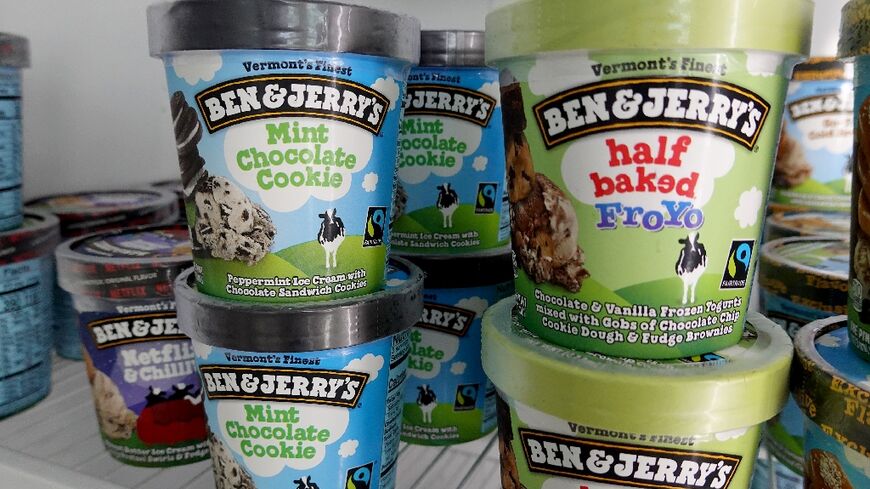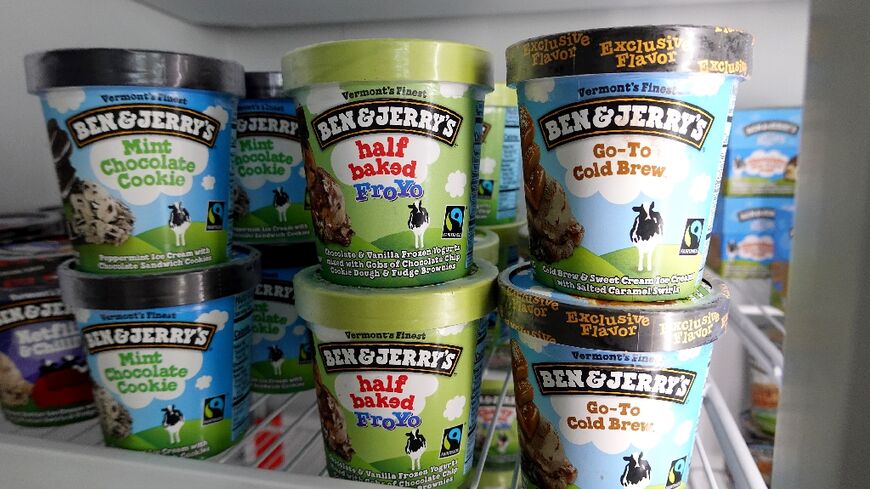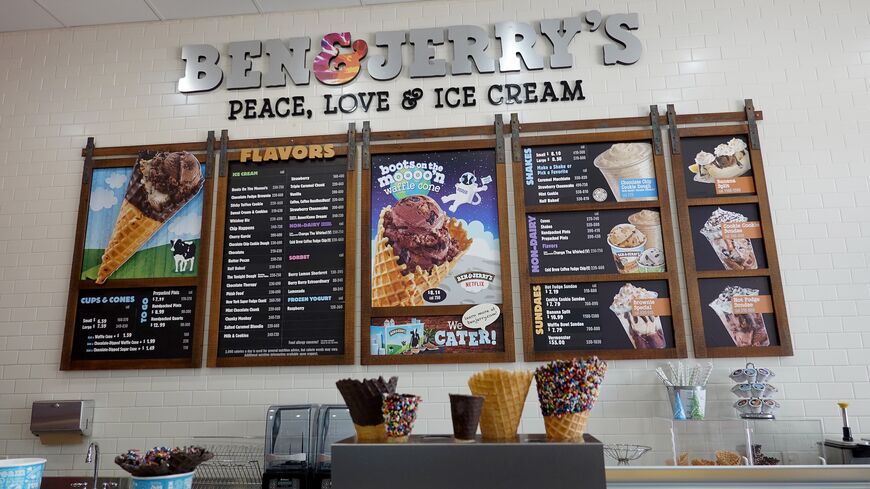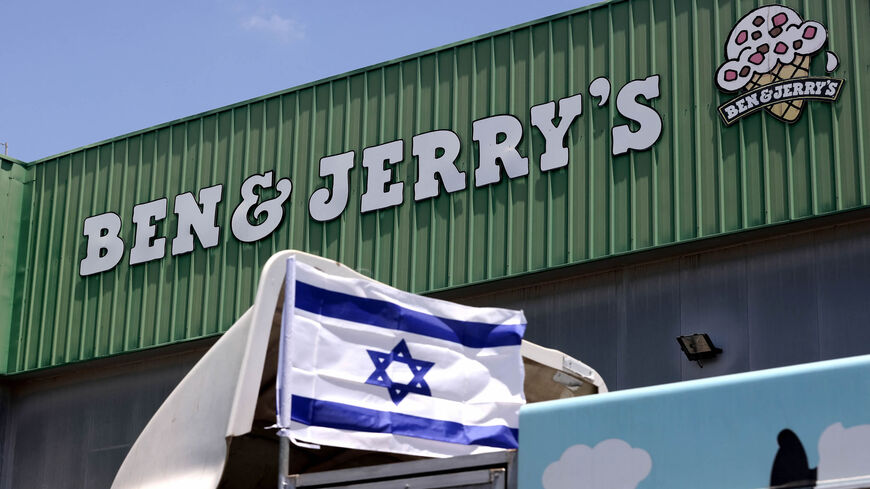Ben & Jerry's to officially return to Israeli settlements after Unilever decision
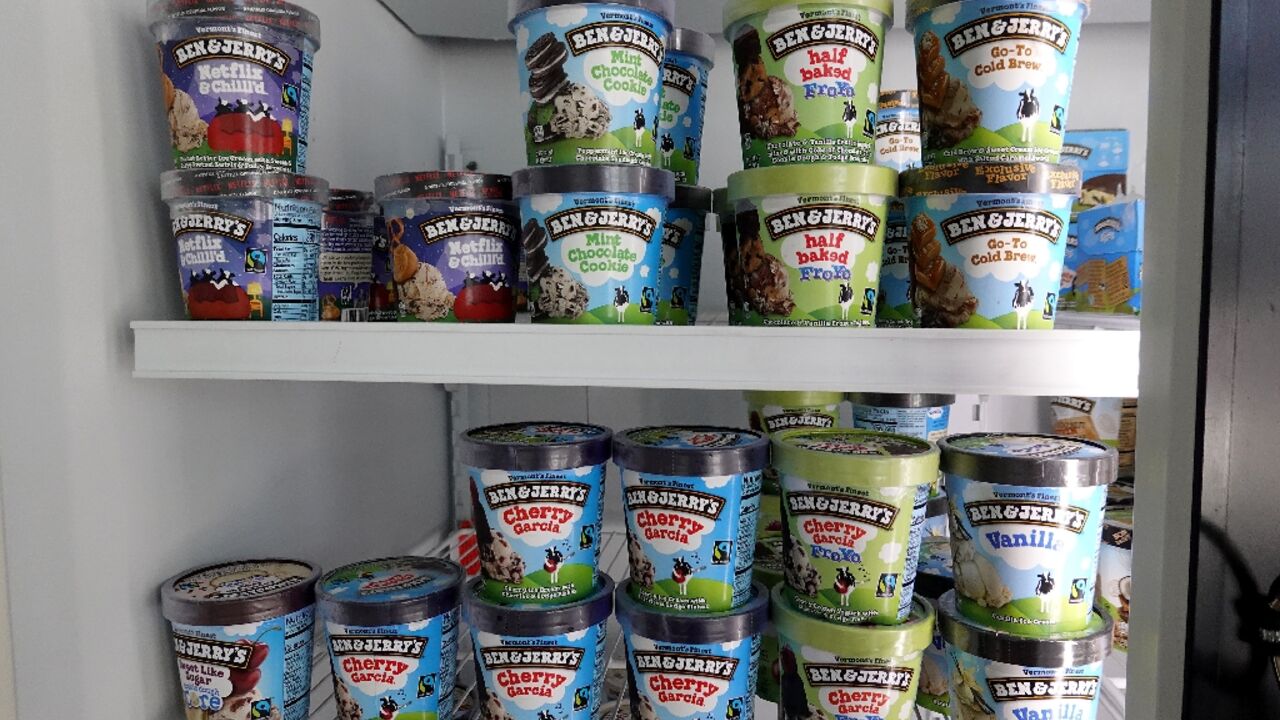
Unilever announced Wednesday it has sold its Ben & Jerry's interests in Israel to a locally based licensee, clearing the way for renewed ice cream sales in West Bank settlements.
In July last year, US-based Ben & Jerry's owned by Unilever announced it would no longer sell its ice cream in the Israeli-occupied Palestinian territories, which the Jewish state seized in 1967.
It said selling ice cream in the Israel-occupied Palestinian territories was "inconsistent with our values", although it said it planned to keep selling its products in Israel.
Parent company Unilever said Wednesday it had "sold its Ben & Jerry's business interests in Israel to Avi Zinger... the current Israel-based licensee".
"The new arrangement means Ben & Jerry's will be sold under its Hebrew and Arabic names throughout Israel and the West Bank under the full ownership of its current licensee," it said in a statement.
Zinger had continued to produce the ice cream in his factory in the suburbs of Tel Aviv and to distribute it to the Israeli settlements, going against Ben & Jerry's decision.
"After long months of negotiations, we have managed to secure the production and sale of our beloved ice cream... in Israel and Judea and Samaria," Zinger said Wednesday, using the Biblical terms for the West Bank.
Hundreds of thousands of Jewish settlers live in the occupied West Bank and east Jerusalem, in communities widely regarded as illegal under international law.
Palestinians had cheered the company's move last year, seen as a victory for the BDS movement, which calls for boycott, divestment and sanctions of the Jewish state over what it describes as the mistreatment of Palestinians.
Israel's Foreign Minister Yair Lapid welcomed Wednesday's decision, saying it "ensures that the Ben & Jerry's factory and its diverse workforce, will be protected", in a joint statement with Economy Minister Orna Barbivai.
It also means "its customers both Jewish and Muslim, Israeli and Palestinian, will not be targeted by the de-legitimisation campaign against Israel," the statement added.
"Anti-semitism will not defeat us, not even when it comes to ice cream," Lapid was quoted as saying. "We will fight delegitimisation and the BDS campaign in every arena."
Founded in the United States in 1978, Ben & Jerry's is known for championing progressive causes, including protecting the environment and promoting human rights.
Last year, Prime Minister Naftali Bennett had said Israel "would use all tools at its disposal" to fight the Ben & Jerry's decision.
Unilever on Wednesday said it had "never expressed any support" for the BDS movement and had "no intention of changing that position".


